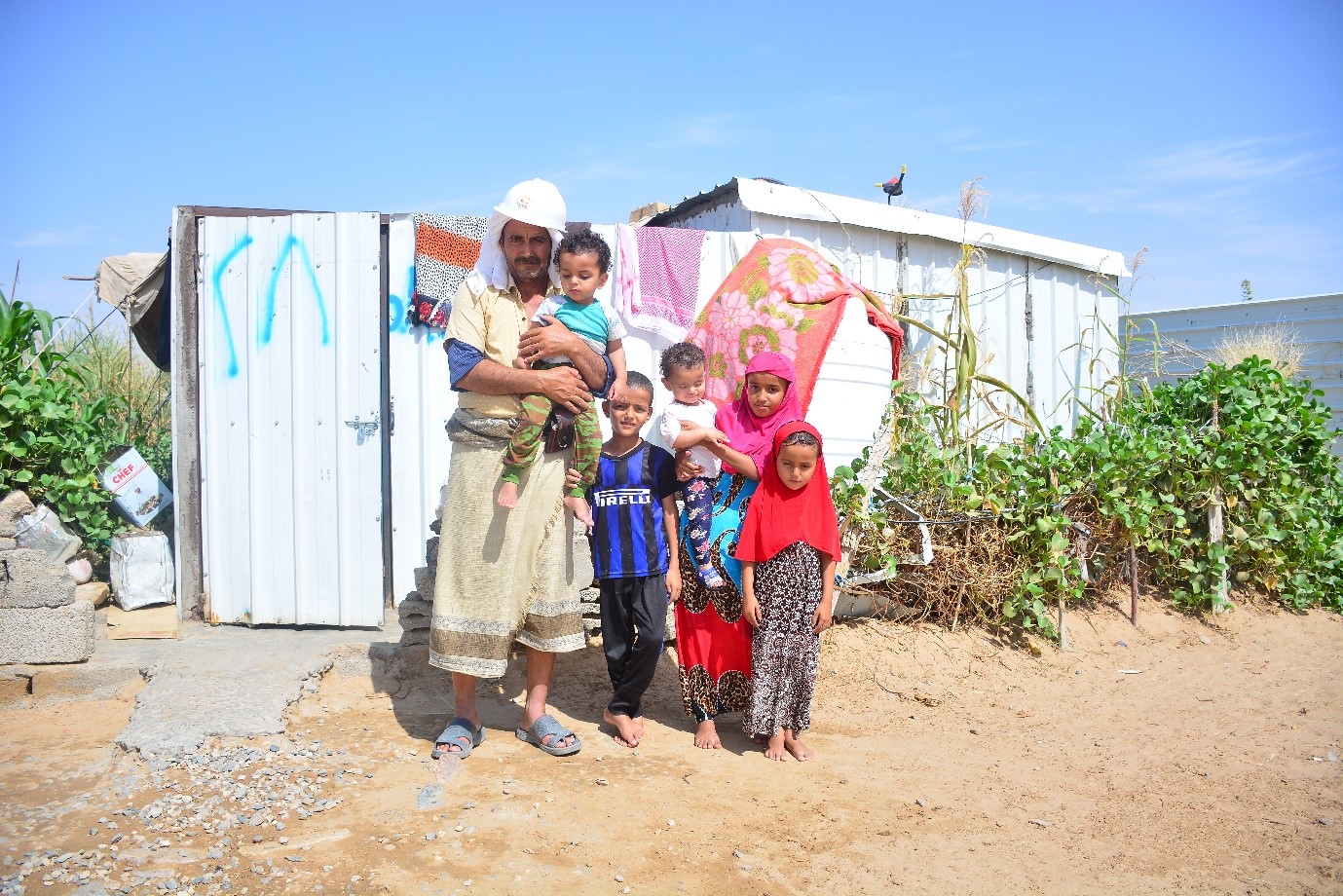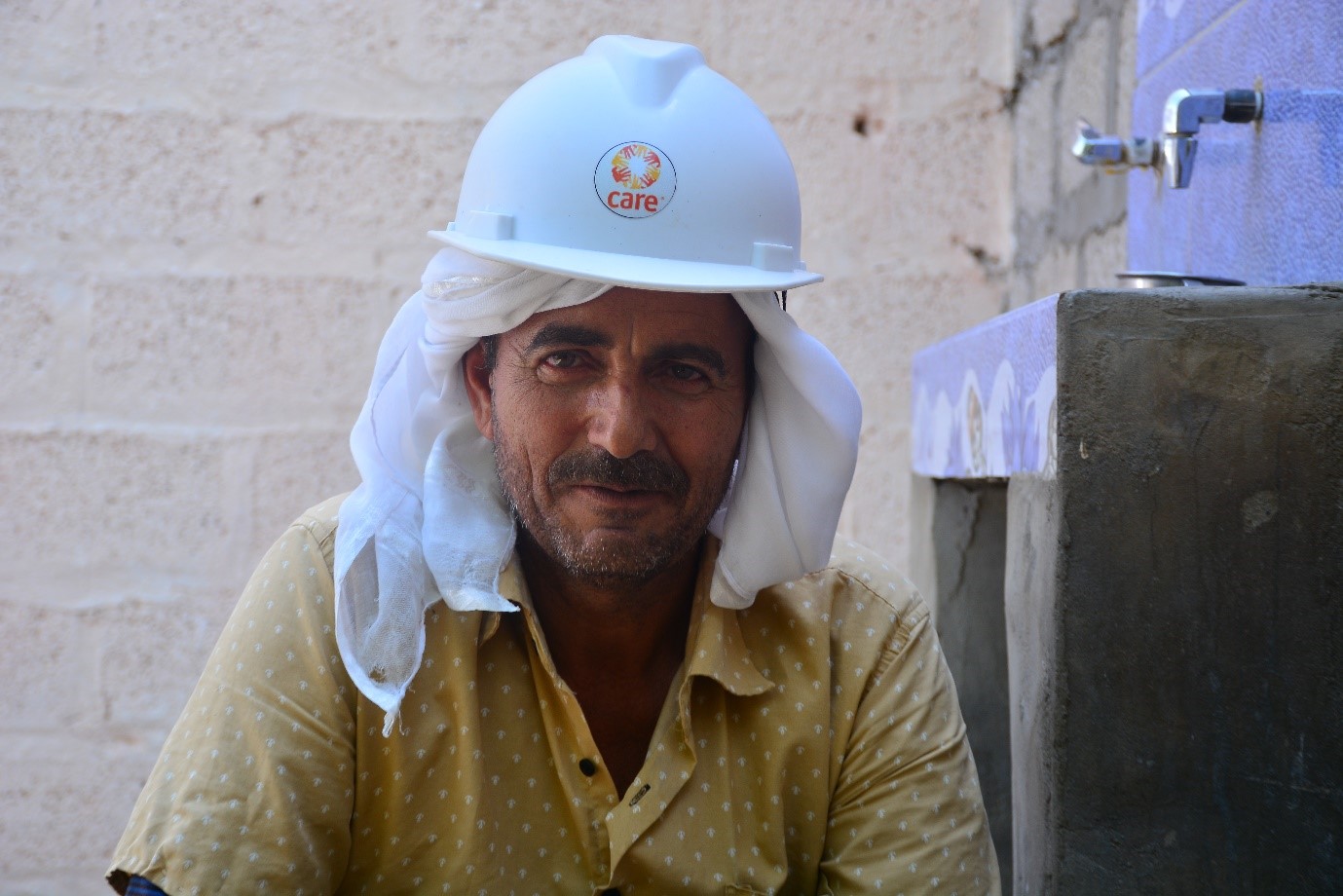Six years of relentless armed conflict have made Yemen the world’s worst humanitarian crisis. 20.7 million people in Yemen – 66 percent of the population – are estimated to need some form of humanitarian assistance, 12.1 million of whom are in acute need. Yemeni people are facing a crisis in obtaining even the basic necessities they need to maintain their health and well-being.
The prolonged conflict has fueled huge internal displacement, leaving Yemen with the fourth-highest level of internal displacement in the world. More than 4 million people have been displaced since 2015, including 172,000 who fled their homes in 2020 alone. The situation for displaced people remains challenging as they don’t have access to shelter, food, water, health and other basic services.
Abdo is a 45-year-old father of six children from Ibb province, in southern Yemen. Prior to the conflict, he used to work as a farmer and provide the basics for his children: food, clean water and paying school fees.

